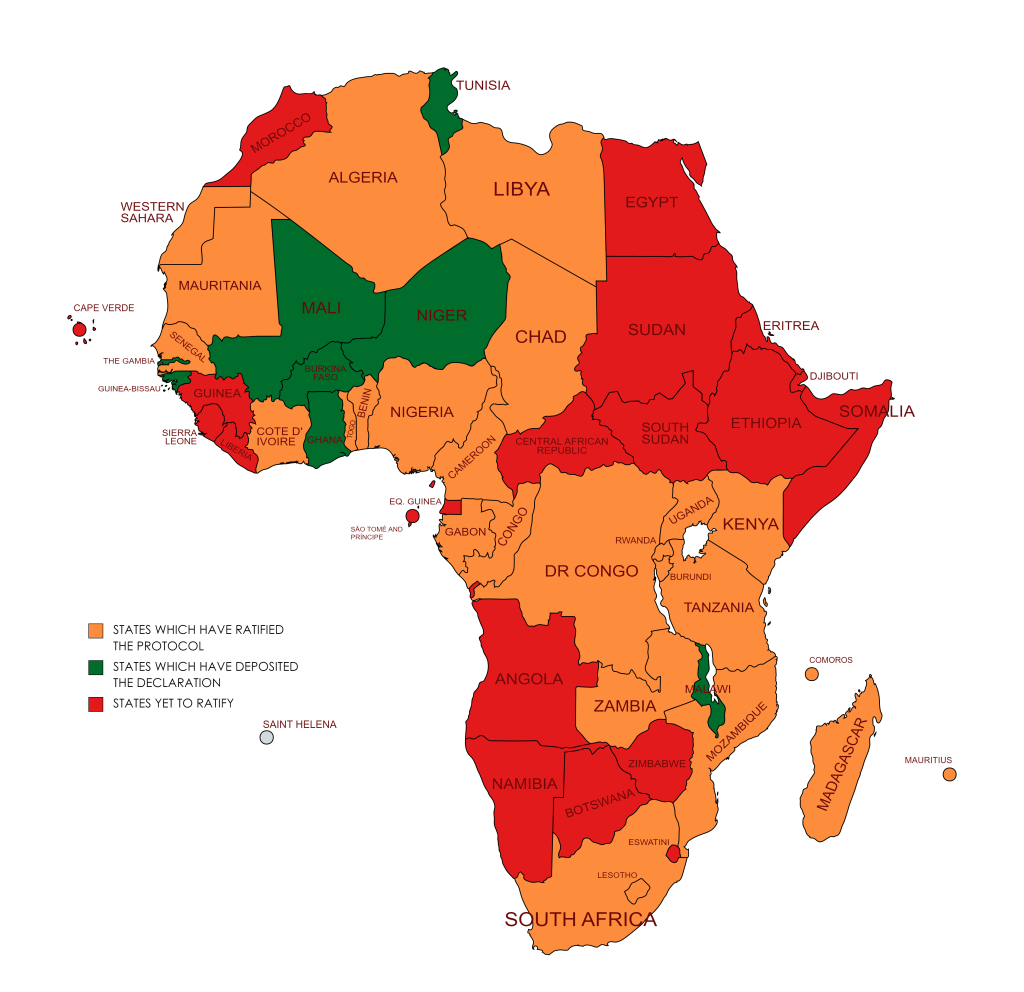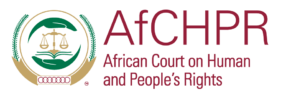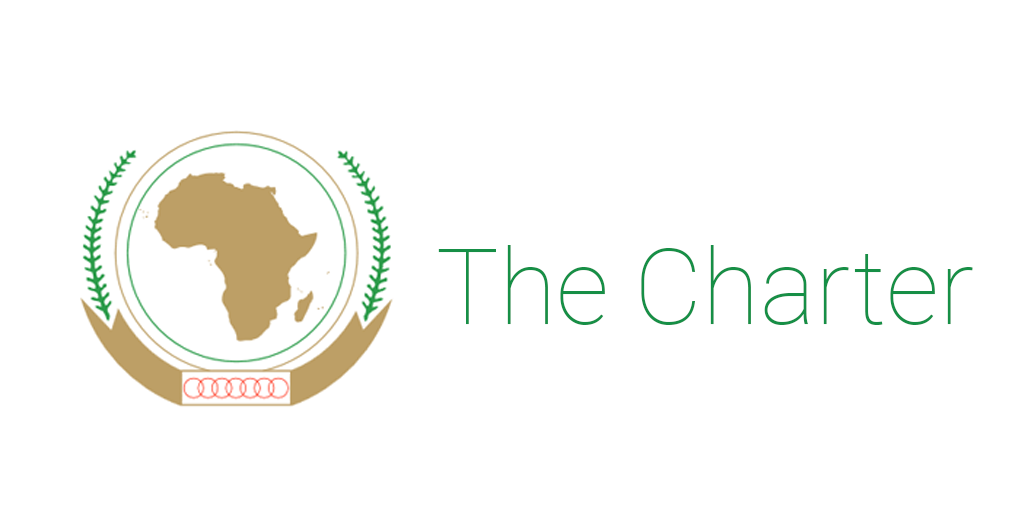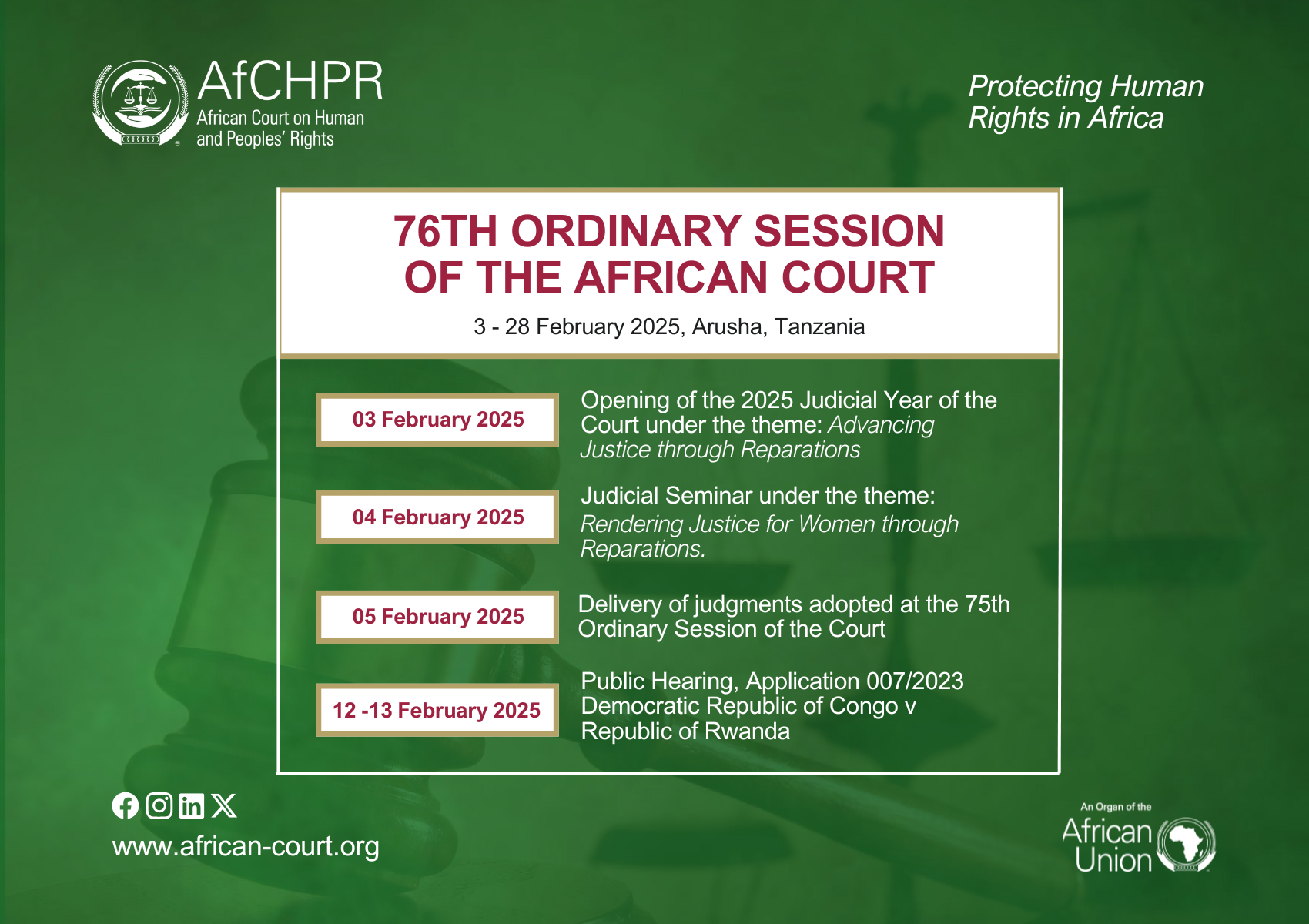Basic information
The Court was established by virtue of Article 1 of the Protocol to the African Charter on Human and Peoples’ Rights on the Establishment of an African Court on Human and Peoples’ Rights (the Protocol). The Protocol establishing the African Court was adopted on 9 June 1998 in Ouagadougou, Burkina Faso and entered into force on 25 January 2004 after it was ratified by 15 African States, as prescribed under its article 34(3).
The Court applies the provisions of the African Charter on Human and Peoples’ Rights (the African Charter) and other human rights instruments ratified by the States concerned. It does not have criminal jurisdiction like the International Criminal Court.
The Court bases its core values on the African Charter and other internationally recognized principles of human rights and the promotion of the rule of law. The Court continues to foster and uphold the following core values:
- Judicial independence and impartiality as between all litigants, parties and stakeholders.
- Fair and impartial application and interpretation of the provisions of the African Charter, other relevant international human rights treaties, the Protocol and the Rules.
- Transparent and ethical accountability in all operations of the Court.
- Upholding every individual’s freedom to enjoy basic civil, political, social, economic and cultural rights.
- Collaboration with relevant stakeholders in pursuance of the Court’s objective of protecting human and peoples’ rights.
- Non-discrimination and equality in performance of the Court’s work.
- Integrity of the Judges and staff working at the Court.
- Providing equal access to all potential users of the Court.
- Responsiveness to the needs of those who approach the Court.
The Court’s Strategic Objectives for the planning period 2021- 2025 emanate from the mandate of the Court andare :
- Improve Judicial Processes
- Enhanced outreach and cooperation
- Strengthened Institutional Cas leo.
Vision
The vision of the Court is an Africa with a viable human rights culture.

Ratification & Declaration
54 of the 55 Member States of the African Union (AU), with the exception of Morocco, have ratified or acceded to the African Charter and have, therefore, committed themselves to respecting the principles set out therein. Only 34 Member States have currently ratified the Protocol. Out of these, only (8) States have filed the Declaration under Article 34 (6 ) of the Protocol by which they accept the competence of the Court to consider applications filed by individuals and NGOs. In the absence of such a Declaration, an application against states that have not made the Declaration must be submitted to the Banjul Commission first, which may – after preliminary examination – decide to refer the case to the Court. The following 34 states have ratified the Protocol, the ones in green have also deposited the Special Declaration: Algeria, Benin, Burkina Faso, Burundi, Cameroon, Chad, Cote d’Ivoire, Comoros, Congo, Gabon, Gambia, Ghana, Guinea-Bissau, Kenya, Libya, Lesotho, Mali, Malawi, Madagascar, Mozambique, Mauritania, Mauritius, Nigeria, Niger, Republic of Congo, Rwanda, Sahrawi Arab Democratic Republic, South Africa, Senegal, Tanzania, Togo, Tunisia, Uganda and Zambia.









